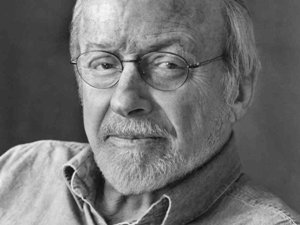
MENG 6510, Eminent Writers —
Selected Writings of E. L. Doctorow
Fall 2017, EH 317 Thursdays 5:30-8:20pm mwutz@weber.edu
Course Description
This 2-credit seminar seeks
to help you understand the late work of E. L. Doctorow,
who is often considered one of the most influential
writers working in the United States in the second half
of the 20th century and beyond. By the time
of his death in 2015, he had produced a body of work
that is among the most wide-ranging of any novelist
working in the aftermath of the Cold War—similar in
scope, perhaps, to the work of his contemporaries Philip
Roth, Don DeLillo, and Margaret Atwood. Well received in academic circles
and popular culture alike, Doctorow mobilized his
considerable narrative energies in numerous directions,
refusing to be pigeon-holed all his life. His
observation that he was a “post-postmodernist” was as
charmingly disarming as it was profound, in full
knowledge that ambitious fiction aspires toward becoming
“a system of knowledge” shaping and capturing the
zeitgeist. Novelist and essayist, public intellectual
and cultural historian, raconteur and reader of the
Constitution—and often of the writers whose
sensibilities he cherished—Doctorow takes his readers
seriously, and wants to be taken seriously.
If Doctorow in his early work often unmasks the myths of
American history (and throughout insists on literary narrative in the formation of
a national
identity), his interests during the, roughly, second
half of his career enlarged to include significant
(re)considerations of—often corporate and
religious—power and the cognitive sciences. This “cognitive turn”—together with more
recent queries into information processing
and media culture—makes Doctorow’s work urgently
contemporary in the best sense of the term, and mark a
prolonged second, if not third, stage in an altogether
impressive career. Welcome and enjoy!